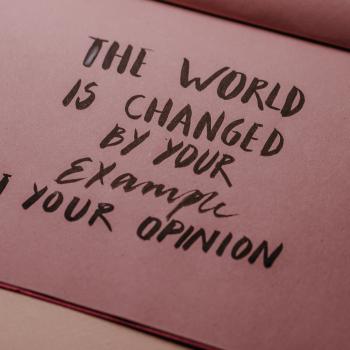
Content creators have a strange and twisted relationship with their readers. This captive audience, the reader, is not unlike a voyeur peering into your inner sanctum. They receive insight into your innermost thoughts, and are free to decide what they want to love, hate, or even steal. But the content creator is not innocent. Like a Burberry man we pop out to unfurl our trench coat like the wings of a middle aged bat, exposing ourselves to the unsuspecting masses. Underneath those coats live things often readers would rather not have seen, and sometimes, things that if held to account in the court of public opinion, we are likely to wish we hadn’t shown. So, before I bare before your very eyes my most embarrassing bits, I choose to lean in close and whisper something illicit…
“You want to hear about my magical ethics?”
It feels like I’m likely to talk about a lot of topics that people are pretty defensive about, or uncomfortable with. Necromancy and why it’s definitely not a bad thing, death in general, LGBTQIA+ issues, and British Traditional Wicca (I promise, we’re not all the GOP of Witchcraft). To that end, it’s probably pretty important to know where I’m coming from ethically. There are lots of ethical frameworks in Pagan traditions including the rule of three, the Wiccan rede, Declaration 127, the upholding of Ma’at, and so many more; but for me it’s all about a personal code. I’m an avid player of Role Playing Games such as Dungeons & Dragons; and I know what you’re probably thinking, but I’ve found that it can be a useful low stakes environment for individuals to test ideas about morality and identity.
Yep. I’m a nerd.
It can be fun to imagine what kind of character your real world self would be, and though I’d like to imagine that I’m a wizard type, friends are quick to point out that it isn’t true. I’m a “paladin” they tell me. RPG Paladins are holy fighters, always ready to slay whatever evil is in front of them, and almost universally reviled by everyone for being a stick-in-the-mud.
In order to keep abilities granted to them by their deity, paladins must uphold a strict code. It might be a personal code, the laws of the land, or the laws of the deity they follow – but it must be followed to the letter. Other players often call them “lawful stupid” because following the letter of their code often conflicts with the characters around them. Their friends, people that they love, those who they are intended to cooperate with – because if something oversteps the boundaries of that code, they must react.
So what does my personal code look like?
- I believe that magic is neither good or bad, but rather a force of energy comparable to electricity. As such, outcomes are benevolent or malevolent depending entirely upon the practitioner.
- I don’t do magic of any kind for myself. I’ve long held the measure of a witch is in what they do for others, it should not be about what we might gain but about what we can give (see #7).
- I believe it is wrong to do magic that interferes with someone’s autonomy or magic that causes an effect that the subject would not otherwise consent to. I recognize that this is a murky area, and that maybe magic isn’t compatible with consent in the first place, but I do my best to try.
- I believe that my magic, my craft, and my tradition, not only can but should be inclusive. Inclusive of all ages, races, sexual orientations, identities, and backgrounds.
- I believe that cursing is sometimes necessary. And by necessary I mean “vital for the fulfillment of a need.” I would only undertake it with a goal of protecting others from harm, or creating boundaries, and never with a goal of revenge nor from a place of anger.
- I adhere to Havamal stanza 127. But you’re a Witch! Yep, but I’m pretty Heathenish as far as Witches go, and when I see misdeeds I speak out against them, and I make no truce or treaties with foes.
- I believe that Tradition™ is just peer pressure from dead people. As such, I adhere to the teachings of the tradition of which I am a part insomuch as it doesn’t cause harm. When I look back on the founders of Gardnerian craft I see a whole lot of people willing to change the rules when necessary (see #5).
- I hold myself to a variety of geas. A Geas is a type of magical prohibition that you agree to as part of a vow. For me those are vows I have made to certain Deities, which include the following:
- I don’t do magic for myself.
- I don’t wear shoes in cemeteries unless I must.
- I carry a blade with me everywhere that I go.
The morality burrito.
Henry Wadsworth Longfellow said “it takes less time to do things right than to explain why you did it wrong,” and I wondered as I wrote this if I was sitting here trying to explain why I do something the “wrong” way for a Gardnerian or a Witch or if I was attempting to show you that those modifiers simply take a backseat to the code that I follow. Only time will tell I suppose, and perspective is everything.
A personal code is always going to be the sum total of who we are, and where we have been; our values, beliefs, and ethics, all rolled up in a big ol’ morality burrito. Over time I will talk a lot about what I believe is right, but I want you to remember that when someone puts forth belief as a foundation for correctness – that belief is just an opinion.
What’s in your code?
Nobody else has to follow or even like my personal magical code, and in any case it’s always going to be evolving and changing, because I’m committed to learning and becoming a better me every single day. My hope is that this gives the voyeurs peering in at the window a picture of who I am underneath the window dressing, and has inspired you to think about what your own personal magical code might look like.
*Rips open trench coat*
Yep. Still a Gremlin under here.
I hope you’ll go check out “The Handbook of Heroes” a totally fun RPG comic well worth throwing some love to, watch this movie because it makes me laugh, and here’s a quiz to help you figure out what kind of RPG character you might be!

















